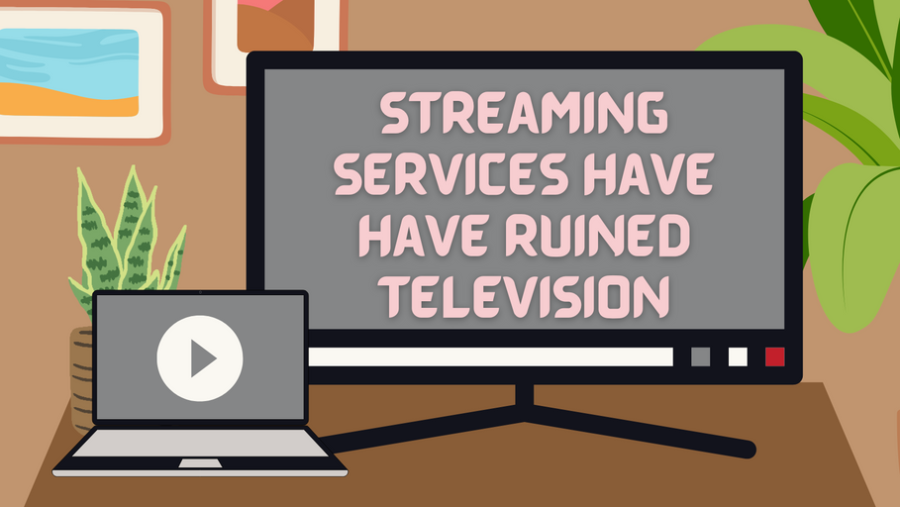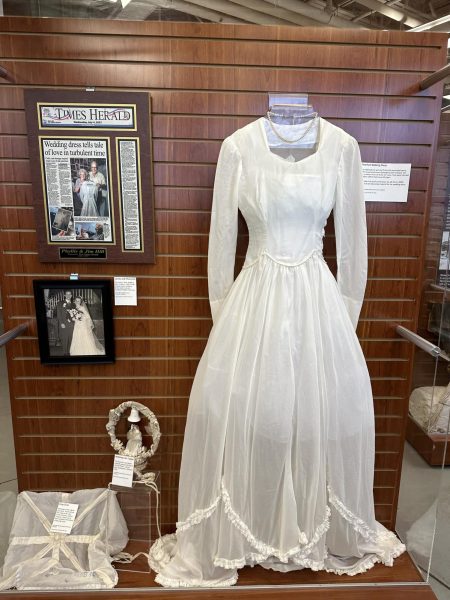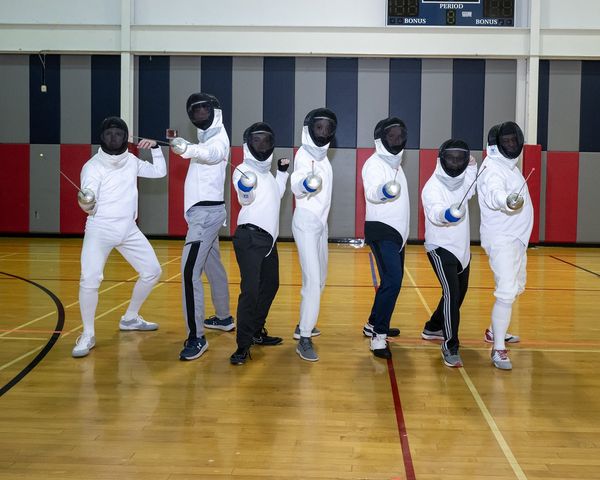Opinion: Streaming services have ruined television
The era of streaming services has drastically changed the production and format of television. It has altered the viewing experience and the elements that once made television unique.
February 15, 2023
Television has been in a weird spot for the last decade. With the switch to streaming services, many changes were made to the production format, and, in most cases, these changes have been for the worse.
Binge culture is just now peeling back. We are starting to see a return to weekly episode releases, and this is fundamentally for the better. At first, it might seem unfair. A show hooks you in its first episode or two, but you have to wait a whole week to get more. However, this allows you to reflect on that episode for the rest of the week, leading toward the next installment.
Weekly releases solve a huge issue most TV shows are running into. Because every episode blends together when you binge-watch, it’s hard to appreciate the smaller aspects of the individual episodes.
With this binging mindset, many streaming services have started shifting focus from serialized television programs to limited miniseries. Now, a new show drops with eight episodes that are all an hour long, and it’s a lot to handle. Not only that, but everyone online is eager to discuss and spoil everything about it.
I miss commercial breaks. Don’t get it twisted, I think advertisements are the worst, and I am glad we don’t have to suffer through three minutes of mind-numbing commercials at a time anymore. However, having a televised episode broken up into separate acts with dedicated bathroom breaks works well with each episode’s structure and line of events.
Some shows get canceled unfairly before they even get a chance to find their audience. For shows on network television, it was normal for a program to find its footing over the first couple of seasons before its peak. Shows like “The Office” and “Community” took a whole season to find their strides. Streaming services prioritize greenlighting as many series as possible to drum up hype for their company without much regard for the lifespan of each show.
Perhaps my biggest problem with the current landscape of television is the sheer amount of boring series. Most of the shows that get recommended to me are overlong narratives with needless subplots and filler that could have easily been cut down to a feature-length film. With episodes that drag on forever and character arcs that take the entire season to go anywhere remotely interesting, I find myself dropping these shows after the first episode or two.
Some series like “Stranger Things” can definitely maintain this formula because of its care for its huge cast of characters, who all make for interesting subplots that coalesce in the end. Sadly, this is the peak.
I can only speak for myself, but I would rather watch shows with shorter episodes and narratives that feel impactful and fulfilling for every single episode. If they all bleed into the same story without much distinctiveness on an individual episodic level, the television format isn’t being utilized to the fullest.
We are entering a new and better age. The newest and most popular shows are back to the weekly format. With a longer life span as the show slowly releases, we get to talk about it more. Having every episode right away is fun at the moment, but after a week, the discussion usually dies. With the current run of popular shows like “The Last of Us” and “Pokerface,” we are finally getting back to the weekly conversation about the shows we love. There is hope yet for this medium that’s been in our homes and hearts for the majority of a century.

















